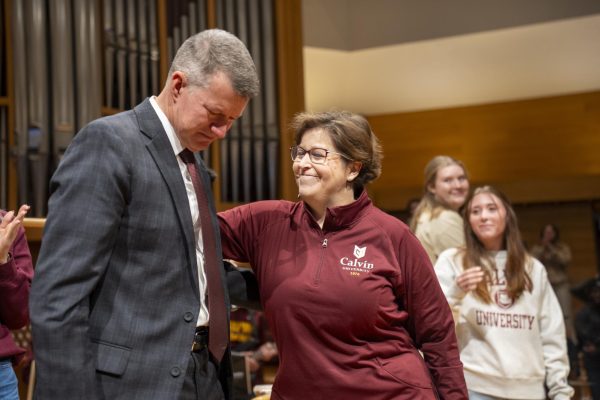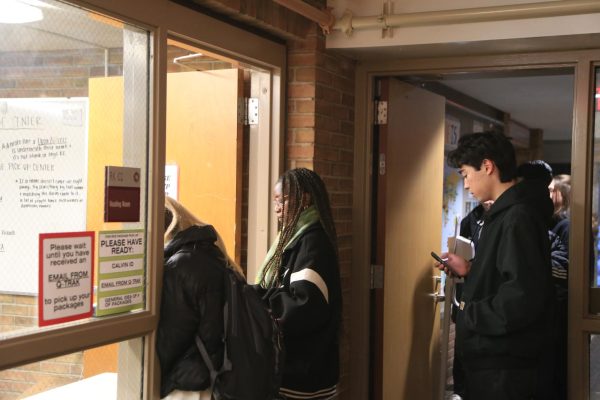Student study questions international accessibility of core literature classes
Do international students have a disproportionate amount of work to do with core literature classes when it comes to reading assignments? Senior English major Claire Lambert is currently exploring this topic through an in-depth semester project she is conducting for her final honors thesis.
To address this question, Lambert is administering surveys and conducting several interviews with Calvin students who have taken a core literature class through the English department. She is looking to find out if core literature classes can be more inclusive to international students in the materials they use and the subject matters discussed, as these can often focus on Western-centric topics.
“It seems to me like literature classes could be more culturally sensitive, either in their subject matter with having more diverse works to read, or by explaining how the British and American perspectives aren’t necessarily the only ones,” said Lambert. But in classes like British and American literature, students have wondered how professors could teach works written by authors from different parts of the world. These courses, it seems, are inherently focused on Western authors and will thus have a Western perspective.
However, Elle Quist, a senior secondary education major in English, sees some missed opportunities at international inclusion in other core literature classes.
“Well, you have to teach some British lit and American lit,” said Quist. “But even with world literature classes we end up reading works like Dante, which is just written by another European author.” This type of course might be more conducive to being internationally inclusive and providing a non-Western-centric view of literature.
But some students have wondered if forcing professors to include new authors from a diverse spectrum of writers that the professors may be unfamiliar with would cause the quality of the class to drop.
“Some students have asked if the native English-speaking students would miss out on anything,” said Quist. “But other students have countered that by saying that teaching more multicultural works can be just as enriching, but is just a different choice.”
Lambert also sees areas for improvement in the way professors themselves relate to international students in core courses. In addition to questioning the class materials, Lambert wants to know if pop-culture references and Western assumptions also play a role in making courses more inaccessible to international students.
And that’s why Lambert is not only interviewing international and local students, but she is also interviewing professors in the department for their opinions. Lambert is not looking to make huge changes in the course structure; rather, she is looking for practical solutions for incorporating a deeper and wider breadth of authors and their works in core courses.
As of now, Lambert isn’t posing any serious solutions to the problems she is addressing; she is waiting on student opinion and public thought to inform her approach to the problem.
Come November, she will stop collecting interviews and survey results. After her research is done, she will collect her findings and submit them to Calvin’s English faculty.
And though some might find literature classes to be inaccessible and excluding, Lambert’s research definitely is not. To get involved and set up an interview, email Claire Lambert at cyl2@students.calvin.edu.






